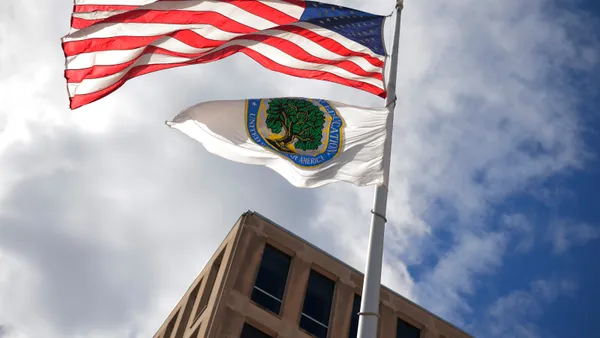Dive Brief:
- The University of Iowa suspended its fraternities pending an investigation into allegations of excessive alcohol consumption and related misconduct, according to the Iowa City Press-Citizen.
- Fraternity leaders last week were called before university officials to respond to claims they had violated a temporary ban on alcohol use put in place last year after a student died at a fraternity event. Fraternity members said they did not have an opportunity to be accompanied by legal advisers or national organization representatives, a claim the university disputes.
- In letters to the fraternities reportedly involved, Angie Reams, associate dean of students, reported that Iowa City Police were called several times to scenes with loud parties, vandalism and emergency calls for medical assistance.
Dive Insight:
Concern about the activities of fraternities has grown over the past few years, resulting in three university presidents at institutions where students died at Greek events publicly agreeing to work to change behavior. In February, parents of 16 students who died in fraternity hazing incidents met to work on the problem. And Bloomberg News last month reported on the lawsuit filed by the mother of a High Point University student who died of an apparent overdose at a fraternity event, but who she says was assaulted by fraternity members.
Colleges are taking more decisive action. West Virginia University recently banned five fraternities for 10 years or more after a contentious debate over reports of their misconduct and their refusal to comply with new rules, and Monmouth University in New Jersey suspended Greek life not related to education indefinitely when officials said the fraternities were unable to come up with suitable guidelines for their own behavior.
The organization Stop Hazing Now reports that 73% of students in fraternities or sororities say they experienced some form of hazing, slightly less than student-athletes (74%), who reported the highest rate. Penn State University instituted a Greek life scorecard that tracks misbehavior, community service and student performance. Penn State President Eric Barron, who is working with other university leaders to address the issue, has advocated for such a system nationally.













